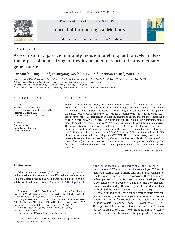摘要
Adeno-associated viruses (AAVs) are common infective agents of primates. As such, healthy primates carry a large pool of AAV-specific neutralizing antibodies (NAbs), which inhibit AAV-mediated gene transfer therapeutic strategies. Thus, a clinical method to screen patient candidates for AAV-specific NAbs prior to treatment, especially with the frequently used AAV8 capsid component, will facilitate individualized treatment design and enhance therapeutic efficacy. In this study, we evaluated the efficacy and sensitivity of a passive immunity mouse model to quantitatively assess anti-AAV8 NAb titers, as compared to an in vitro immunoassay. The passive transfer model was established in C57BL/6 mice by tail vein injection of pre-defined sera from 23 male rhesus monkeys. The mice were then administered low dose (3e10 GC/mouse) self-complementary (sc) AAV8. The in vitro NAb assay indicated that 69.57% of the rhesus donors had pre-existing anti-AAV8 NAb. The in vivo NAb assay, however, was better able to detect low NAb titer (<= 1:5), which can mediate neutralization in vivo. Indeed, 17 rhesus donors (74.0%) had pre-existing anti-AAV8 neutralization by in vivo NAb assay. Our findings indicated that the in vivo NAb assay is superior to the in vitro assay for detecting low NAb titers.
- 出版日期2013-1
- 单位四川大学
